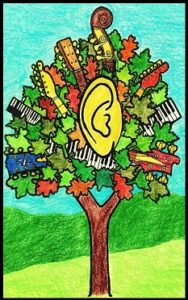 Let’s look at the similarities and differences between the core competencies you need for classical versus modern musical settings. In both classical and modern settings, you need technical proficiency on your instrument, and you need to understand the mechanics of music.
Let’s look at the similarities and differences between the core competencies you need for classical versus modern musical settings. In both classical and modern settings, you need technical proficiency on your instrument, and you need to understand the mechanics of music.
Whether you play classical or modern music, your value as a musician is tied to how extensive your repertoire is, or isn’t. It isn’t just a matter of how much music you have learned. Just as important is which music you have chosen to learn. The more relevant music you know, and the more quickly you can learn new music, the more valuable you are to a group, whether classical or modern.
Classical musicians need excellent reading skills. They need to know how to interpret written music. They need to know how to follow a conductor. Unless you’re a composer, you’re not concerned with creating new music. The classical music repertoire is fixed and finite. Bach and Beethoven aren’t writing any more new music.
After that, there are differences in the core skills that you need in order to fit into one setting or another. For instance, both classical and modern musicians have to learn to work in a group, but the group dynamics in a symphony orchestra are very different from those in a rock or country band.
Musicians who play modern styles, should have a thorough understanding of chords and scales. They should learn music in terms of concepts like chord progressions, rhythmic phrasing, and dividing songs into sections like verse, chorus and bridge.
Modern musicians should be able to read music by ear, and pick out specific parts from recordings. They need to know how to interpret modern music. They should be familiar with a large repertoire of relevant music. Modern musicians memorize their parts, while classical musicians usually read theirs. Modern musicians should be able to improvise and compose within a style. They should be able to listen to a music track, and figure out their parts based on what they hear.
Sometimes you need to reverse-engineer the exact part the player on the original track played. Sometimes you need to create a part that’s not exactly like the original, but fills the same role in the arrangement as the part on the track.
The list of core competencies from a leading jazz college includes notating music, including lead sheets, by hand and with a computer program. You also have to transcribe chord charts of popular recordings. You’re expected to read music by ear from a recording and write it out.
Next, I’ll discuss the sources of the disconnect between classical and modern musicians.
© 2019, 2020 Greg Varhaug